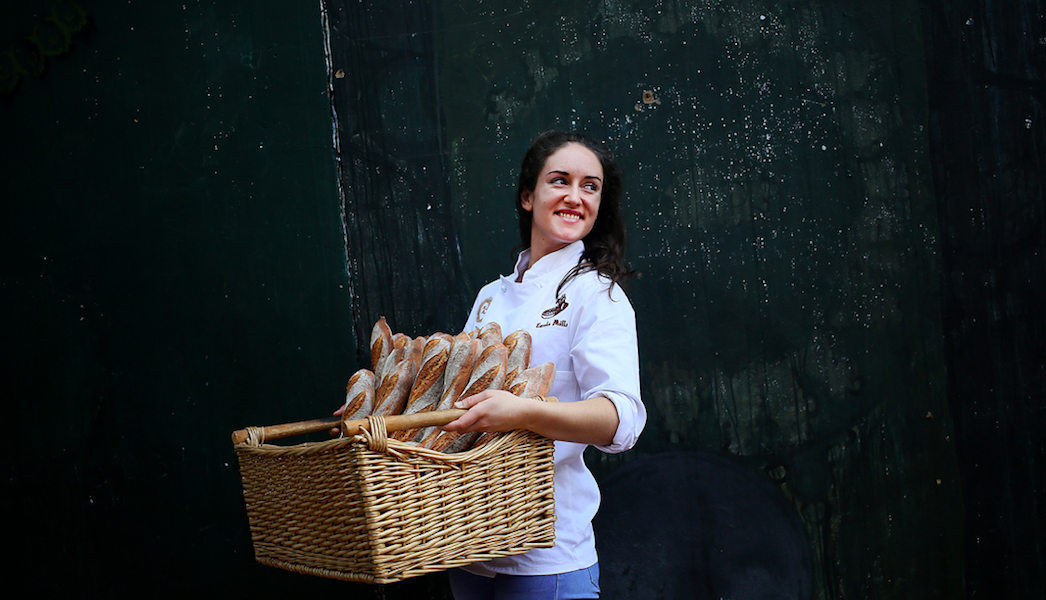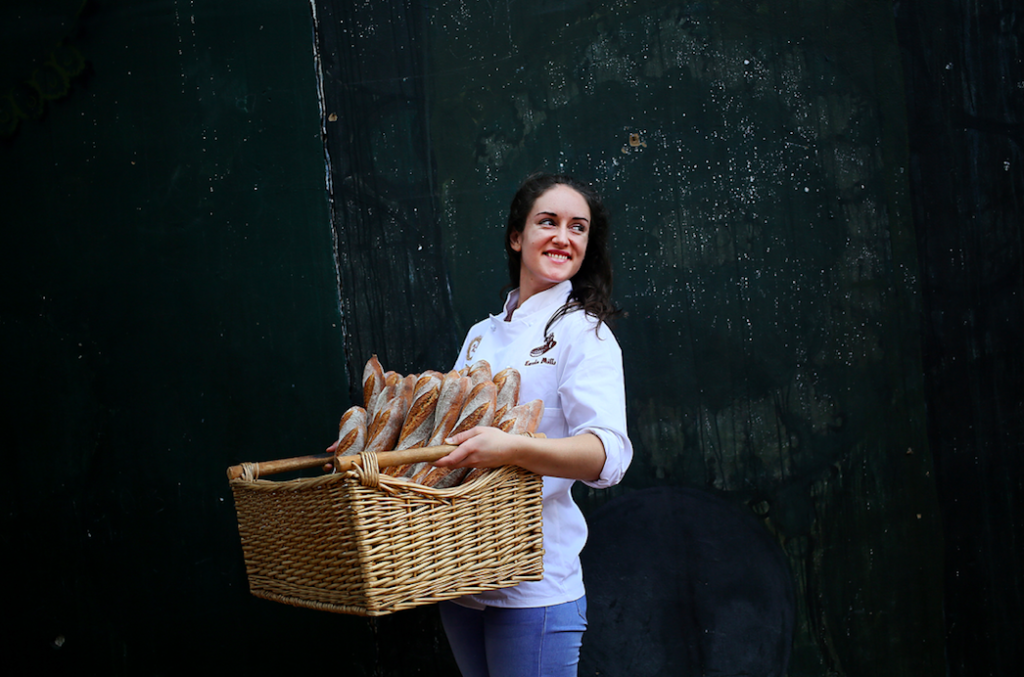
Some time between spending her evenings feeding her new obsession for baking by making mouth-watering breads for her family and friends while studying law and her graduation, Babette Kourelos made a decision that would not only change her life, but see her travel all the way from her home in Johannesburg, South Africa to Vermont, America. “My interest developed into a bit of an obsession and I baked whenever I had a free moment,” she says. “Soon, family, friends, and neighbours started placing orders and I realised that it could potentially become a business.”
The decision to swap law for Levain landed Kourelos an internship with French Master Baker Gerard Rubaud in his bakery nestled in the countryside of Westford. “Stepping into it was like entering into a different world,” says Kourelos. “One where time slowed down, technology and smart devices were unwelcome and attention was only paid to the dance of the Levain (the French sourdough). Everything from the fermentation boxes to the workbench to the oven was old school. It was a world of flour, wild yeast, wood, and stone. No artificial products or methods were used.”
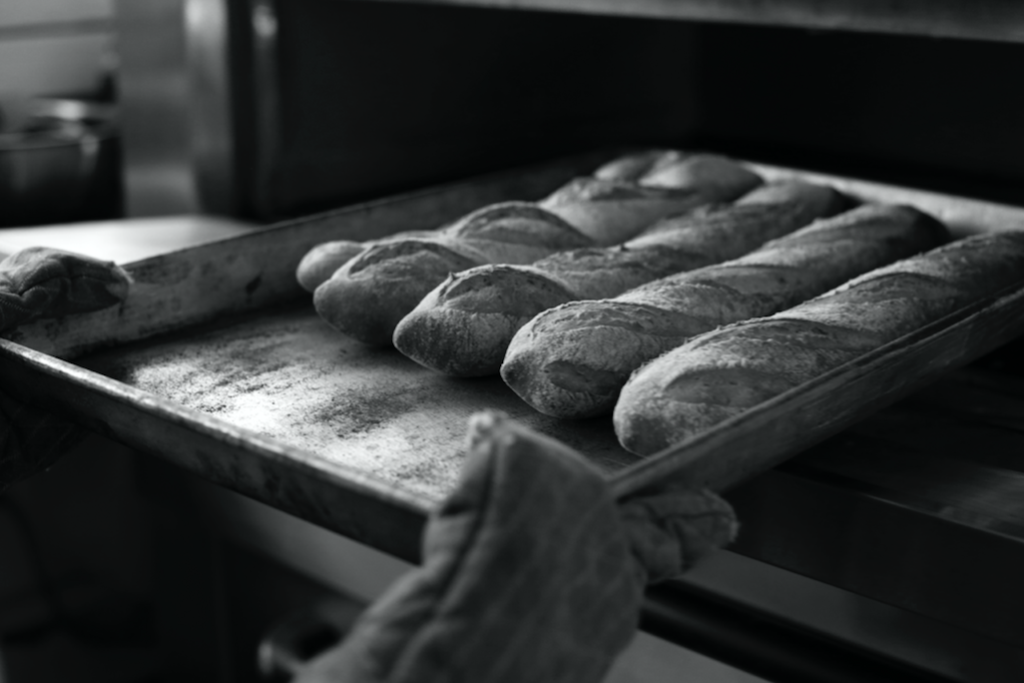
The apprentices watched and helped Gerard and learned the secrets of wild yeast and wood-fired oven baking. “Intuition and experience became your only friends,” says Kourelos. “Sleep became a luxury and the leaven would often require you to wake at odd hours in order to be fed or moved to an area with a more appropriate/suitable ambient temperature.”
Kourelos learned everything she knows about French sourdoughs from Rubaud, and was sad to hear of his recent passing last month. “Apprenticing under him was quite an experience. Despite being a Master of his art, he often struggled to master his temper and apprentices did not last long at the bakery,” she says. “Nonetheless, I am eternally grateful for the time I spent training under him, as I would not have the sourdough understanding and skills if it was not for him.”
Loaded with knowledge and specialist skills, with even more love for the art of making the perfect loaf, Kourelos returned to Johannesburg where the friends and family members who had placed orders for the bread she had baked during her university days waited with anticipation at what was to come. Kourelos did not disappoint, creating a bread mailing list for people who wanted to eat better bread and letting them know what and when she was baking. “Customers would place their orders and collect from my mother's house,” she says. “Soon, I reached full capacity and moved to The Maboneng Precinct, where my husband has a business called Concept Store Johannesburg.”
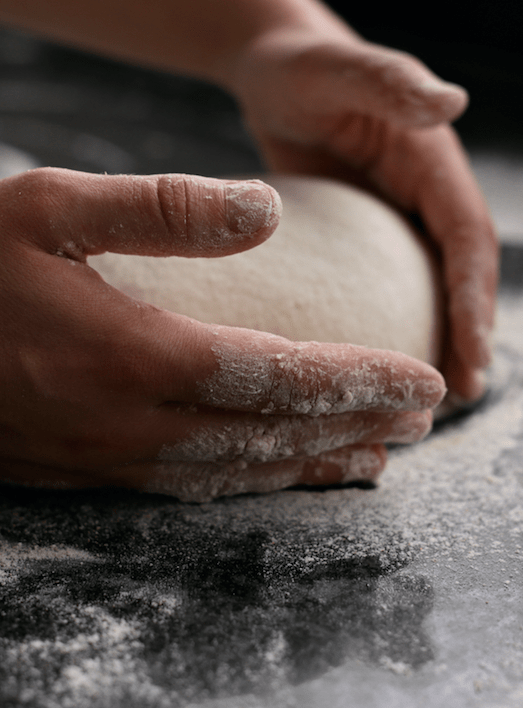
Along with all she had learned in Vermont, she had also brought back “Maggie”. "Maggie" is my Sourdough starter or "Levain", explains Kourelos. “Gerard taught me how to harvest the wild yeast present in natural flour and how to turn them into a thriving culture. He was surprised to see that my first attempt at making a sourdough culture was a success and brushed it off as beginner's luck. When the second attempt at a culture was also a success, Gerard instructed me to get rid of one of the cultures as I was not supposed to "multi-task". I kept "Maggie", named after Gerard’s partner who often came to visit at the bakery and who became my friend, as she was my first culture. Upon leaving the bakery, I took "Maggie" with me and brought her back to South Africa.”
In 2013, 24-year-old Kourelos opened the doors to her bakery and coffee shop Babette’s Bread. She was soon supplying many restaurants, delis and coffee shops with bread on a wholesale basis and also started hosting bread workshops for home bakers who wished to bake simple and nutritious bread at home.
“I adore teaching and sharing baking skills with my students. There is nothing like seeing the immense joy and satisfaction on people's faces when they bake and take their first loaves out of the oven. Bread truly is the stuff of life and being able to impart the skill onto others is exceptionally rewarding and makes me genuinely happy.”
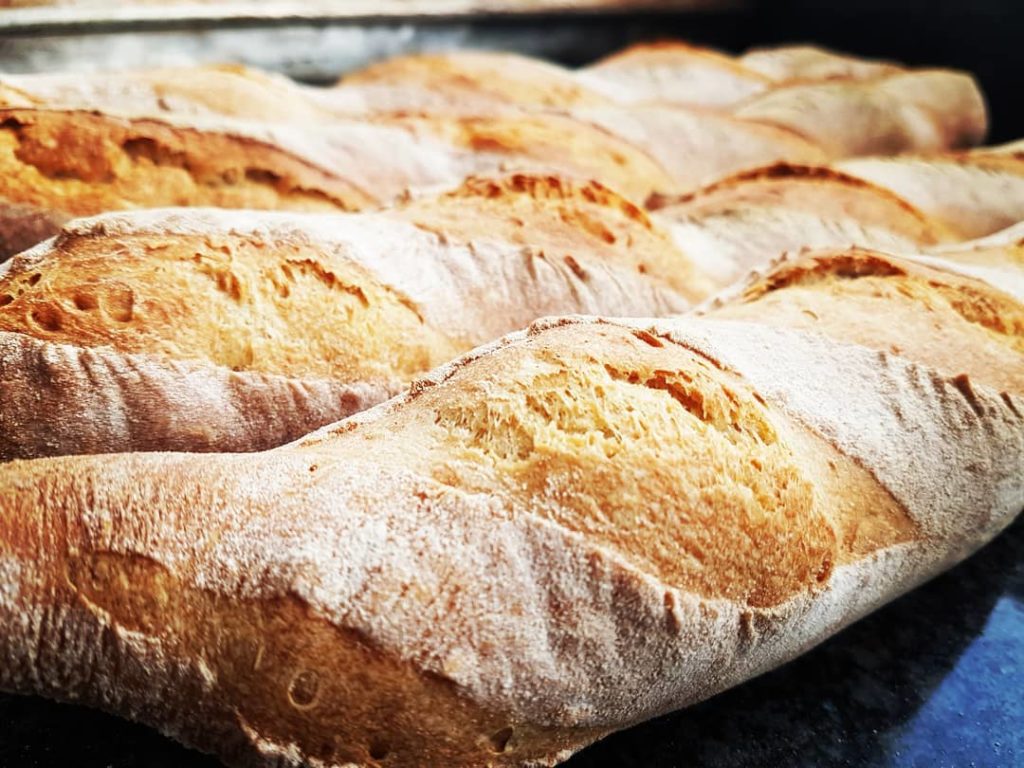
There are Beginner, Intermediate and Advanced bread workshops and Kourelos has recently added a Christmas baking workshop as well as a Speciality Bread workshop to the list. “The workshops focus on all the skills necessary to create simple and nutritious loaves in your home kitchen,” she says. “Practical as well as theoretical skills are imparted on the students and people are able to attend courses based on their level of experience or special interest.”
There is a lot to learn about the staple that satisfies tummies, fills the air with the aroma of home, and is the perfect accompaniment to a meal. As she informs her students, old-school baking techniques require the baker to know and understand what the dough needs at any given time and how to tweak the immediate environment so as create the best possible conditions for the dough. “A good understanding of fermentation is key, as the artisan relies only on basic ingredients and his intuition to create an outstanding product,” Kourelos explains. “By altering hydration percentages and ambient temperature as well as fermentation time, the baker is able to coax the best flavours and textures out of the dough. No commercial ingredients or shortcuts are used by the artisan.”
Lovers of real artisan bread are quick to notice the difference in the aroma, flavours, enjoyment in eating the bread, and even how they feel afterward. “Artisan baking requires time, patience and love versus the dough enhancers, dough conditioners, additives. used in commercial baking,” says Kourelos. “The long and slow fermentation time required by artisan baking results in bread that is easy to digest, robust, delicious and nutritious. Conversely, the bread that is mass produced and churned out in a very short period of time, often leaves consumers struggling to digest it as well as feeling bloated.”
What about bread’s bad reputation with people trying to lose weight, and the people who boast and lament in equal parts that they have eliminated bread from their diet. “In my opinion, the biggest misconception about bread is that it is "unhealthy and "fattening", says Kourelos. “People like to demonise bread, gluten and all carbs in general without actually knowing or understanding why or what they are. Unless a person has coeliac disease, bread and gluten should not be a concern. If the bread is made using good quality ingredients and given sufficient time to ferment and develop, it will be nutritious and easy to digest. Fast bread = bad. Slow bread = good. All things in moderation obviously.”
A quick look at her Instagram shows inviting images of crusty artisan loaves made buckwheat or olives, perfect paninis, tantalising tartlets, chunky ciabatta. When asked what her favourite bread to make and eat is, Kourelos does not skip a beat in her answer. “Sourdough is without a doubt my favourite bread. The fermentation process never ceases to amaze and excite me and the bread itself is much more flavourful and nutritious than the rest.”
One would suspect that she is a popular dinner guest, especially if she arrives with her beautiful artisan breads in tow.”Yes, I often take bread to people's houses,” she smiles, “but wine too (they just go so well together). The most popular breads are definitely the sourdough and baguettes. Speciality breads also feature, but sourdoughs and baguettes are good staples.”
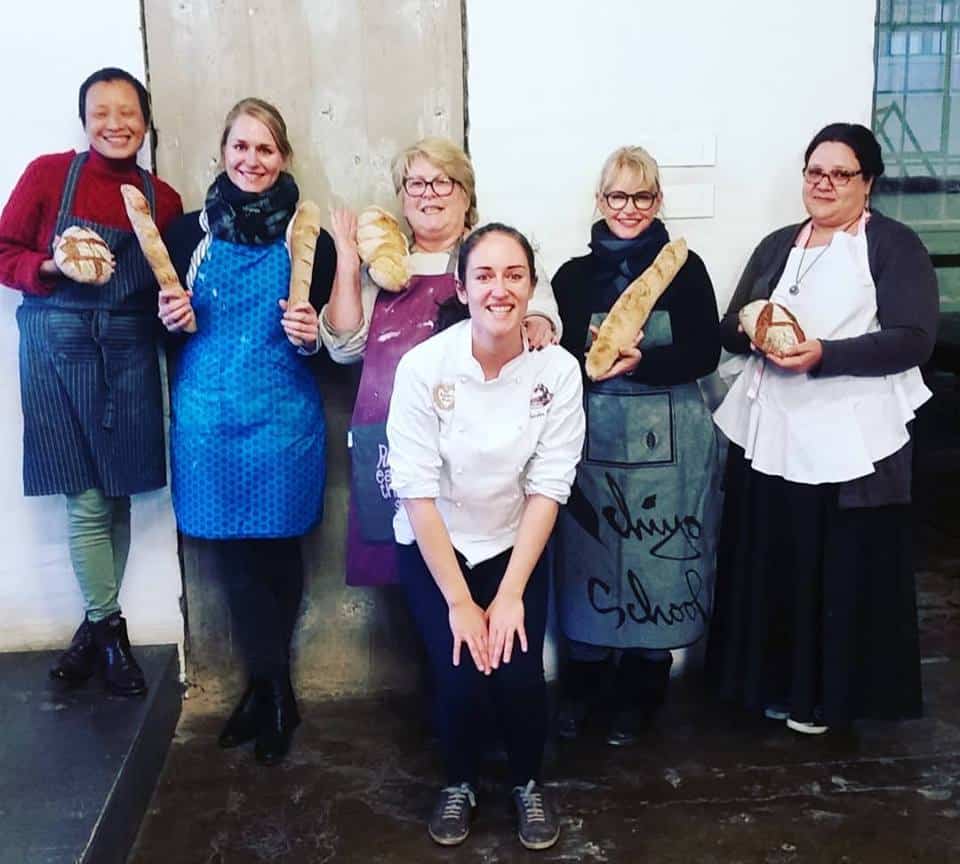
Due to some life changes, Kourelos has recently decided to temporarily close the wholesale and retail side of the business and, for the time being, channel all her focus on the bread workshops, bread consulting and an upcoming book. She is also looking to get involved in Consumer Law and Food Law, areas she feels very passionate about.
“People trust that they are receiving what they assume they are paying for: a decent healthy loaf. The truth is that there is a lot of junk in most commercial breads and subliminal advertising lulls people into simply buying and trusting instead of asking important questions,” she says. “Many breads are not even made onsite but are simply frozen doughs placed in the supermarket oven by a person who knows nothing more about baking other than how to set a timer and to make sure the bread does not burn.”
“Unfortunately, there are a lot of impostor bakeries that pretend to be selling artisan bread when they are in fact using poor ingredients and shortcuts to create breads that look like the real deal but are in fact nowhere close to real bread. These impostor bakeries often rely on false and/or subliminal advertising (making use of words such as "real", "natural", "artisan", "healthy", "sourdough".) but they rely on commercial flour, extra additives, large quantities of sugar, colourants, preservatives to get their products on the shelf in as short a time as possible. For this reason, it is extremely important that consumers become educated not only about the products they are buying and how they are made, but also their rights in terms of consumer law.”
It is easy to see how Kourelos’ passion for the real bread and authenticity is a source of inspiration to customers and students alike. True to her pursuit of keeping things real, her own outlook is one of optimism and meaning. “Being an entrepreneur, I find it truly inspiring that "one does not need a lot to create a lot."
*Images by Karene Wedekind (Copyright)

